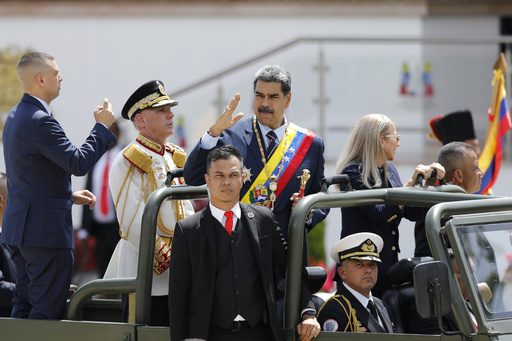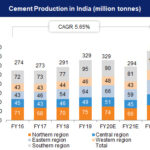By Satyaki Chakraborty
Venezuela is at cross road as the country with 31 million population is going to elect the next President in the Presidential polls scheduled on Sunday, July 28. President Nicholas Maduro who is ruling the South American nation since 2013 is being challenged by the national opposition nominee Edmundo Gonzalez.
Just three days before the crucial polls, excitement is running high among the Venezuelan citizens as the direction of the political and economic line of the country depends on the results of the Sunday elections. International observers have come and close monitoring of the election process is being done. Maduro government has assured of making all efforts to ensure peaceful elections.
President Maduro who is in power for the last eleven years is facing serious anti-incumbency. His socialist government which followed the policies of the former President Hugo Chavez showed authoritarian trends during its tenure. The ruling combination RSLV alienated in the recent years some of the coalition partners including the Venezuelan Communist Party. The trade unions also held demonstrations in favour of their demands. There was general decline in the popularity of the Maduro government among the people including those who are against any right wing victory. Latest opinion polls show that Maduro is trailing behind his opponent by around 20 per cent.
More than 80 per cent of Venezuelans in a recent poll said they wanted a change of politics, including those who support the Bolivarian project. For the first time in decades, voters say they are willing to turn out to cast their ballots, a dramatic change from years of declining voter trust and participation in elections. A recent survey showed that 83 per cent of the voters will be casting their votes. The increasing participation of young voters has ominous signs for the Socialist President as the youth are most dissatisfied at growing job crisis.
The root cause of the unpopularity of Maduro government is the crisis in Venezuelan economy. Venezuela’s economy has started to grow this year and last. But under Maduro’s presidency ,the economy has contracted by more than 75 per cent overall and last year’s inflation rate of 190 per cent was one of the highest in the world. More than 7.7 million Venezuelans have fled the country, the vast majority since 2013. The economic decline has some relationship with the U.S sanctions on the country imposed in 2019 but the government also failed to utilize whatever resources it had.
In the past, the opposition parties in Venezuela had struggled to remain unified and had split over strategies to force a change of government. In 2005, 2018 and 2020, opposition parties abstained from participating in elections in protest at what they deemed an unfair process. The effect, though, was to lock them out of elected positions in the National Assembly in 2005 and 2020 polls.
In 2019, with the encouragement of the administration of then-US President Donald Trump, the opposition formed a shadow, interim government in the hopes of sparking regime change, backed up by US sanctions on the Venezuelan economy. Yet the /Maduro government remained in power, and the opposition was left marginalized internationally and domestically. This time, the opposition parties have chosen a common leader Gonzalez and the civil society organisations have also rallied behind him.
President Maduro has launched massive campaign in the last few days to change the political mood in his favour. He has announced a public spending project promising 35 per cent rise in the spending which is expected to lead to huge generation of new jobs. He has also taken some measures to assist the vulnerable sections of the population. The ruling coalition had talks with the other partners seeking their full support to the President Maduro on Sunday elections.. Maduro supporters say that all these last minute decisions will be having impact and Maduro will scrape through.
Even if Maduro wins on Sunday polls by a small margin, the opposition is sure to challenge the results and the stalemate may continue for days. The international observers role will be crucial in this phase. If opposition wins and that gets endorsed by the National Electoral Council, Maduro has to agree to step down but he has time till January 2025 when only the newly elected president will take over. This five month period will give him adequate time to take care of the ruling coalition’s interests.
In any case, the post poll scenario in Venezuela is full of uncertainties and possibility of confrontation. The international observers including those from Brazil and Columbia have to play a major role in facilitating peaceful transition in Venezuela after the July 28 elections. In January 25, national elections as also regional polls are due. So the democratic process has to continue by giving full respect to verdict of Venezuelan people. (IPA Service)




 India Emerging As The Most Attractive Destination For Global Cement Manufacturers
India Emerging As The Most Attractive Destination For Global Cement Manufacturers 